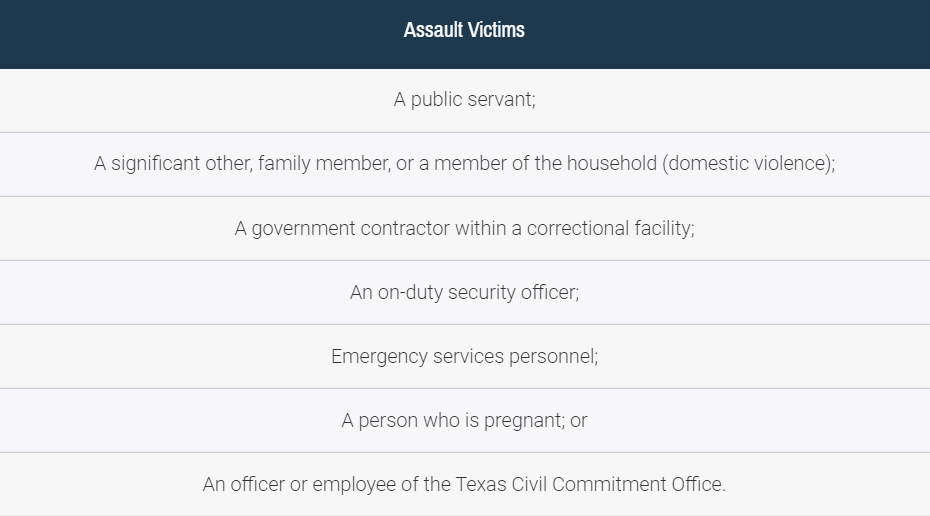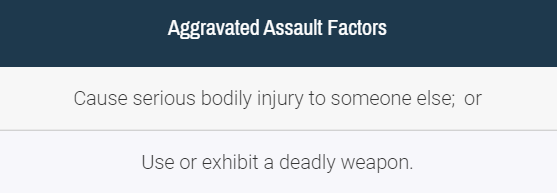Assault
Criminal charges in Lubbock County for Assault or Aggravated Assault can result in serious consequences, both in court and in your day-to-day life. Besides facing jail time and heavy fines, having a crime of violence on your criminal record could also impact your employment, your housing, your civil rights, your ability to obtain a professional license, and many other aspects of your life and your future. If you’ve been arrested on assault charges in West Texas, call me today to schedule a free consultation. As a criminal defense lawyer with years of experience, I can walk my clients through every step of the criminal justice process and fight to protect their rights to the full extent allowed by the law.
Assault
In Texas, the criminal offense of assault is broad and encompasses a variety of behaviors. When you hear the word “assault”, you probably think of an act of violence. However, the Texas assault statute also includes threats of violence and offensive but non-violent contact.
You can be arrested for simple assault in Texas if you commit any of the following offenses:

If you are charged with an assault for threatening to injury someone or offensive contact, the offense will usually be a Class C misdemeanor. However, it can also be charged as a Class B or Class A misdemeanor in various situations.
If you commit an assault that causes bodily injury, it is generally a Class A misdemeanor. However, under certain circumstances, it can be charged as a third degree felony or a second degree felony if the victim is one of the following

The jump from a misdemeanor charge to a felony charge is an important one, as felony convictions in Texas cause you to lose some of your civil rights, including your right to own a gun. If you’ve been charged with a simple felony assault, a Texas attorney who is practiced in criminal defense law can negotiate on your behalf to try to get a reduced charge. Every case is different, but it’s essential to have quality legal representation in criminal cases.
Relevant Statute:
Texas Penal Code § 22.01 — Assault
Aggravated Assault
Aggravated Assault is just what its name sounds like: it’s an assault that is more serious (aggravated) by certain factors. In Texas, you the district attorney’s office can charge you with aggravated assault if, in the course of committing a simple assault, you either:

Under Texas law, a “deadly weapon” is defined as any of the following:

Aggravated assault charges can result in a second degree felony conviction unless any of the following is true:

If any of these situations apply, then the aggravated assault can be charged as a first degree felony, which is the second most serious classification of offense in Texas criminal law.
Relevant Statutes:
Texas Penal Code § 22.02 — Aggravated Assault
Texas Penal Code § 1.07(17) — Definition of “Deadly Weapon”

